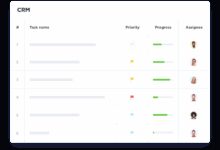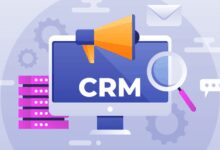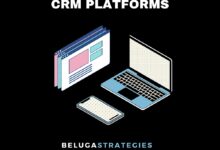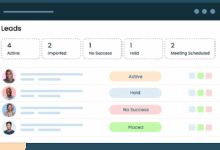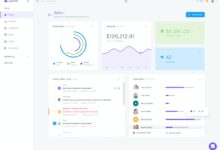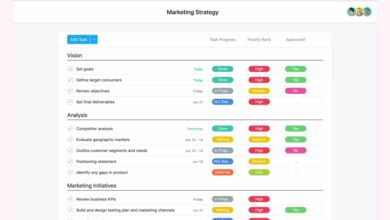Cloud based crm software for small business: Top 7 Cloud Based CRM Software for Small Business Success
In today’s fast-paced digital world, choosing the right cloud based CRM software for small business can be a game-changer. It’s not just about storing contacts—it’s about building relationships, streamlining sales, and scaling smarter.
Why Cloud Based CRM Software for Small Business is a Must-Have

Small businesses today face fierce competition, limited resources, and ever-increasing customer expectations. A cloud based CRM software for small business offers a powerful solution by centralizing customer data, automating workflows, and enabling smarter decision-making—all without the need for expensive hardware or IT teams.
Cost-Effective Operations
One of the biggest advantages of cloud based CRM software for small business is its affordability. Unlike traditional on-premise systems that require upfront investments in servers and maintenance, cloud CRM operates on a subscription model. This pay-as-you-go approach allows small businesses to scale as they grow.
- No need for physical servers or IT infrastructure
- Monthly or annual subscription plans fit tight budgets
- Lower total cost of ownership (TCO) over time
According to Gartner, cloud CRM adoption has surged due to its flexibility and lower entry barriers, especially among SMBs.
Accessibility and Mobility
With a cloud based CRM software for small business, your team can access customer data from anywhere—whether they’re in the office, working remotely, or meeting clients on the go. This level of accessibility ensures real-time updates and faster response times.
- Access via web browsers or mobile apps
- Synchronize data across devices instantly
- Enable remote sales teams to stay connected
“The cloud has democratized CRM technology, making enterprise-grade tools accessible to even the smallest businesses.” — Forbes
Key Features to Look for in Cloud Based CRM Software for Small Business
Not all CRM systems are created equal. When evaluating cloud based CRM software for small business, focus on features that align with your operational needs and growth goals. The right tool should simplify, not complicate, your daily workflows.
Contact and Lead Management
At the heart of any CRM is the ability to manage contacts and leads effectively. A good cloud based CRM software for small business should allow you to store, organize, and track every interaction with prospects and customers.
- Automated lead capture from websites, emails, and forms
- Customizable contact fields and segmentation
- Lead scoring to prioritize high-potential prospects
Tools like Zoho CRM offer AI-powered lead scoring that helps small businesses focus on the right opportunities.
Sales Pipeline Tracking
Visualizing your sales process is crucial for forecasting and identifying bottlenecks. A cloud based CRM software for small business should include a drag-and-drop pipeline that reflects your unique sales stages.
- Customizable sales stages (e.g., prospecting, negotiation, closed-won)
- Real-time pipeline dashboards
- Automated reminders for follow-ups
This feature ensures that no deal falls through the cracks and helps managers coach their teams more effectively.
Automation and Workflow Tools
Time is a precious resource for small businesses. Automation within cloud based CRM software for small business can save hours every week by handling repetitive tasks like email follow-ups, task assignments, and data entry.
- Automated email sequences based on customer behavior
- Task and reminder scheduling
- Workflow rules to route leads to the right team member
For example, HubSpot CRM offers powerful automation tools that are free to start, making it ideal for budget-conscious startups.
Top 7 Cloud Based CRM Software for Small Business in 2024
Choosing the best cloud based CRM software for small business depends on your industry, team size, and specific needs. Here’s a curated list of the top 7 platforms that deliver value, ease of use, and scalability.
1. HubSpot CRM
HubSpot CRM is a favorite among small businesses for its intuitive interface and robust free plan. It’s a full-featured cloud based CRM software for small business that includes contact management, email tracking, and deal pipelines.
- Fully free CRM with no time limits
- Seamless integration with marketing, sales, and service hubs
- Excellent onboarding and educational resources
Its ecosystem grows with your business, allowing you to upgrade to paid tools as needed. Learn more at HubSpot’s official site.
2. Zoho CRM
Zoho CRM is a powerful, AI-driven cloud based CRM software for small business that offers deep customization and automation. It’s particularly strong for businesses with complex sales cycles.
- Zia AI assistant for predictive insights and sales suggestions
- Multi-channel communication (email, phone, social, chat)
- Extensive app marketplace with 500+ integrations
Zoho also emphasizes data security and compliance, making it a trusted choice. Visit Zoho CRM to explore pricing and features.
3. Salesforce Essentials
Salesforce, a global leader in CRM, offers Salesforce Essentials—a simplified version designed specifically for small businesses. It’s a reliable cloud based CRM software for small business that brings enterprise power to SMBs.
- Up to 10 user seats, ideal for small teams
- Pre-built templates for common industries
- Mobile app with full functionality
While it’s more expensive than some alternatives, its scalability and ecosystem make it a long-term investment. Check out Salesforce Essentials for details.
4. Freshsales (by Freshworks)
Freshsales stands out for its AI-powered insights and user-friendly design. As a cloud based CRM software for small business, it’s built to help sales teams close deals faster.
- Integrated phone and email within the CRM
- Lead scoring powered by AI
- Visual deal timeline to track customer interactions
Freshsales also offers a free plan with up to 10 users, making it highly accessible. Learn more at Freshworks CRM.
5. Insightly
Insightly is a great choice for small businesses that need project management alongside CRM. It’s a versatile cloud based CRM software for small business that bridges sales and operations.
- Project and task management integrated with CRM
- Customer relationship linking (tracking company hierarchies)
- Workflow automation with conditional logic
Its focus on relationship management makes it ideal for service-based businesses. Explore Insightly for pricing and demos.
6. Pipedrive
Pipedrive is built for sales-focused teams. This cloud based CRM software for small business emphasizes pipeline management and deal tracking with a highly visual interface.
- Drag-and-drop sales pipeline
- Activity reminders and scheduling
- Strong integration with Gmail, Outlook, and Slack
Pipedrive’s simplicity makes it easy to adopt quickly. Visit Pipedrive to start a free trial.
7. Agile CRM
Agile CRM combines CRM, marketing automation, and helpdesk features in one platform. It’s an all-in-one cloud based CRM software for small business that’s perfect for startups wearing multiple hats.
- Free plan with basic CRM and marketing tools
- Website tracking and pop-up forms
- Telephony and email integration
While the interface can feel cluttered, its feature density offers great value. Learn more at Agile CRM.
How to Choose the Right Cloud Based CRM Software for Small Business
Selecting the best cloud based CRM software for small business isn’t just about features—it’s about fit. The wrong CRM can lead to low adoption, wasted money, and frustrated teams. Follow these steps to make a smart decision.
Assess Your Business Needs
Start by identifying your core challenges. Are you struggling with lead follow-up? Do you need better reporting? Is your team scattered and uncoordinated? Map these pain points to CRM capabilities.
- List must-have features vs. nice-to-have
- Define your sales process stages
- Consider future growth and scalability
This clarity will help you avoid overpaying for unnecessary tools or underestimating your needs.
Test for User Adoption
No matter how powerful a CRM is, it’s useless if your team won’t use it. Look for cloud based CRM software for small business with intuitive interfaces and minimal learning curves.
- Take advantage of free trials (most offer 14–30 days)
- Involve key team members in the evaluation
- Check mobile app usability and offline access
User adoption is the #1 predictor of CRM success, according to Nucleus Research.
Evaluate Integration Capabilities
Your CRM shouldn’t exist in a silo. It should connect with your email, calendar, accounting software, and marketing tools. The best cloud based CRM software for small business offers seamless integrations.
- Check native integrations with tools like Gmail, Outlook, QuickBooks, Slack
- Look for API access for custom connections
- Use Zapier or Make for no-code automation
For example, HubSpot and Zoho CRM both offer deep integrations with hundreds of third-party apps.
Implementation Tips for Cloud Based CRM Software for Small Business
Implementing a new CRM is more than just installing software—it’s a process that requires planning, training, and ongoing support. A smooth rollout ensures long-term success.
Start with Clean Data
Migrating messy or duplicate data into your new CRM will create confusion and inefficiencies. Before importing, take time to clean and organize your existing customer information.
- Remove outdated or duplicate contacts
- Standardize naming conventions and formats
- Back up your data before migration
Most cloud based CRM software for small business offers data import tools via CSV or Excel.
Train Your Team Effectively
Even the best CRM fails without proper training. Invest time in onboarding your team with clear, hands-on sessions.
- Provide role-specific training (sales, support, marketing)
- Create quick-reference guides or videos
- Appoint a CRM champion to answer questions
HubSpot Academy and Zoho Learn offer free training resources to support this process.
Monitor and Optimize Regularly
CRM implementation isn’t a one-time event. Regularly review usage, gather feedback, and tweak workflows to improve performance.
- Check login frequency and data entry completeness
- Use built-in reports to track sales metrics
- Adjust automation rules based on real-world results
“A CRM is only as good as the data it contains and the people who use it.” — Sales Hacker
Common Challenges and How to Overcome Them
Even with the best cloud based CRM software for small business, challenges can arise. Being proactive helps you avoid common pitfalls.
Low User Adoption
One of the biggest hurdles is getting your team to consistently use the CRM. Resistance often comes from fear of complexity or added workload.
- Involve users early in the selection process
- Highlight time-saving benefits (e.g., auto-logging emails)
- Set clear expectations and accountability
Make CRM usage part of your team’s daily routine, not an extra task.
Data Security Concerns
Storing sensitive customer data in the cloud raises valid security questions. However, reputable cloud based CRM software for small business providers invest heavily in security.
- Look for GDPR, SOC 2, and ISO 27001 compliance
- Ensure data encryption (at rest and in transit)
- Use strong passwords and two-factor authentication
Most top CRMs offer better security than on-premise systems managed by small IT teams.
Integration Complexity
While integrations are a strength, they can also become complex, especially with legacy systems or custom apps.
- Start with essential integrations only
- Use middleware like Zapier for simple connections
- Consult with vendor support or a CRM consultant if needed
Keep your integration strategy simple and scalable.
Future Trends in Cloud Based CRM Software for Small Business
The CRM landscape is evolving rapidly, driven by AI, automation, and customer experience demands. Staying ahead of trends ensures your small business remains competitive.
AI-Powered Insights and Predictions
Artificial intelligence is no longer a luxury—it’s becoming standard in cloud based CRM software for small business. AI helps predict customer behavior, recommend next steps, and automate responses.
- AI-driven email suggestions (e.g., HubSpot, Zoho)
- Predictive lead scoring and deal forecasting
- Chatbots for instant customer support
These tools help small teams act like large, data-driven organizations.
Hyper-Personalization
Customers expect personalized experiences. Modern CRM systems enable hyper-personalization by leveraging data from multiple touchpoints.
- Dynamic email content based on user behavior
- Personalized website experiences
- Behavior-triggered automation (e.g., abandoned cart follow-up)
This level of personalization builds trust and increases conversion rates.
Mobile-First CRM Design
As remote work and field sales grow, mobile CRM usage is rising. The next generation of cloud based CRM software for small business is designed for smartphones and tablets first.
- Offline access and sync capabilities
- Voice-to-text notes and call logging
- Mobile dashboards and reporting
Platforms like Salesforce and Pipedrive are leading this shift with robust mobile apps.
What is cloud based CRM software for small business?
Cloud based CRM software for small business is a web-hosted system that helps small companies manage customer relationships, track sales, and automate marketing. It’s accessible from any device with internet, requires no hardware, and is typically subscription-based.
Is CRM worth it for small businesses?
Yes. A cloud based CRM software for small business improves organization, boosts sales efficiency, enhances customer service, and provides valuable insights—all at an affordable cost. The ROI is often realized within months.
Can I use CRM software without technical skills?
Absolutely. Most cloud based CRM software for small business is designed for non-technical users. Platforms like HubSpot and Zoho CRM offer intuitive interfaces, drag-and-drop builders, and free training resources.
How much does cloud CRM cost for small businesses?
Prices vary, but many cloud based CRM software for small business options start at $10–$50 per user per month. Some, like HubSpot and Agile CRM, offer free plans with core features.
What’s the easiest CRM to learn?
Pipedrive and HubSpot CRM are widely regarded as the easiest to learn due to their clean interfaces, guided onboarding, and extensive help centers.
Choosing the right cloud based CRM software for small business is one of the most impactful decisions you can make. It’s not just a tool—it’s a strategic asset that can drive growth, improve customer satisfaction, and empower your team. From HubSpot’s free tier to Salesforce’s enterprise-grade Essentials, there’s a solution for every budget and need. Focus on ease of use, essential features, and long-term scalability. Implement it with clean data, proper training, and ongoing optimization. As AI and mobile capabilities evolve, the future of CRM is brighter than ever for small businesses. Start small, think big, and let your CRM be the foundation of your success.
Recommended for you 👇
Further Reading:
